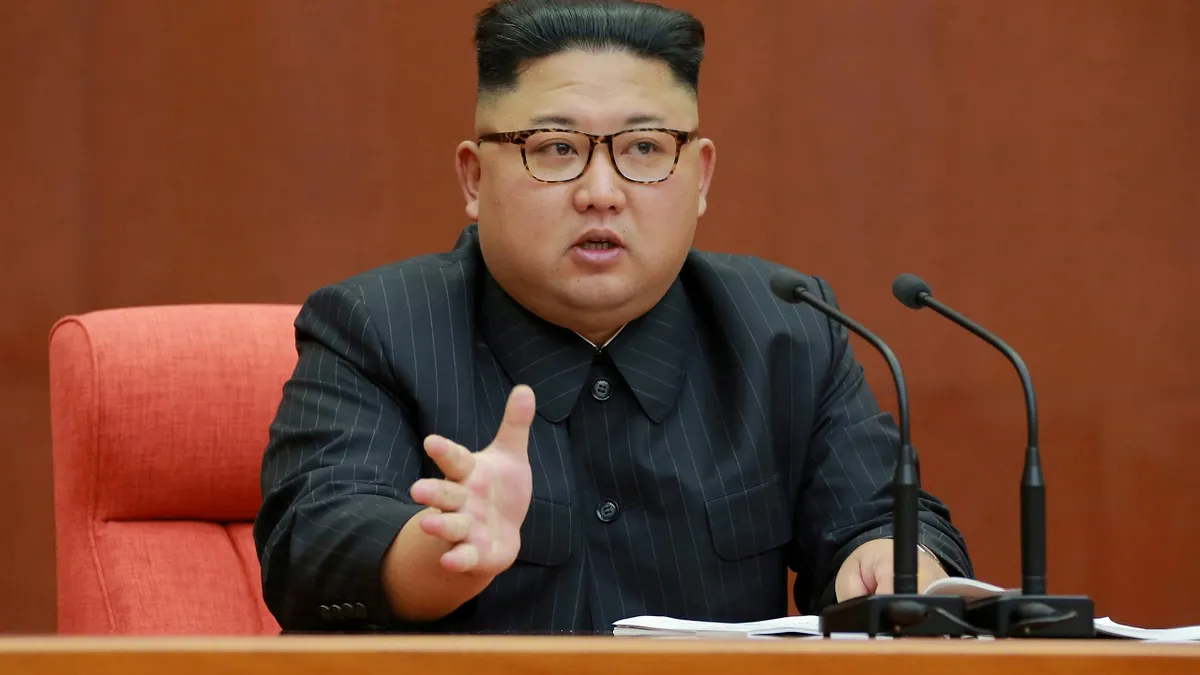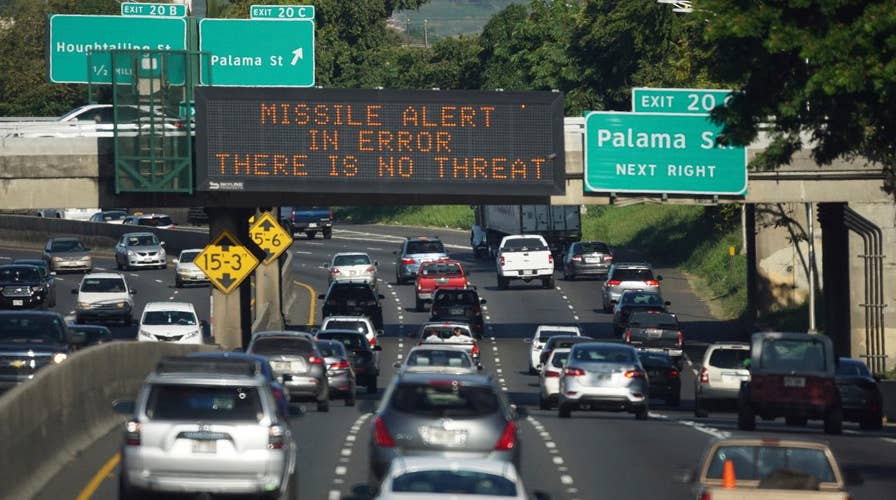Hawaii false alarm raises questions about national security
Widespread panic caused by a false missile alarm sent to residents and tourists in Hawaii triggers concerns about U.S. readiness for a real threat; insight from Adm. Robert Natter, retired U.S. Navy four-star admiral and former commander of the 7th Fleet in Japan.
Two countries, two erroneous alerts. A pair of islands long believed to be in the crosshairs of the rogue North Korean regime were plunged into panic when residents got warnings a missile was incoming.
Although the warnings, on Saturday in Hawaii and in Japan several days later, were mistakes, they underscore the jitters caused by Pyongyang's constant saber-rattling and the Trump administration's rhetoric, say North Korean experts.
"It’s not just North Korea's threats -- which they have been making periodically for years -- that's contributing to the general anxiety," said Joel Wit, a former U.S. State Department official and senior fellow at the US-Korea Institute at Johns Hopkins SAIS.
"Everyone’s rhetoric is making the situation worse and previous administrations have tried not to inflame the situation."
"The tension has only been ratcheted up by President Trump’s responses," Wit told Fox News. "Everyone’s rhetoric is making the situation worse and previous administrations have tried not to inflame the situation."
Wit noted North Korea's testing in November of what its state-controlled media described as the "most powerful ICBM" carrying a "super-large heavy warhead" to unprecedented heights -- capable of reaching the "whole" U.S. mainland. He also cited a recent New York Times report about the U.S. military conducting exercises that could be in preparation for possible conflict with the North Koreans.
"It's all of the above," Wit said when speaking about the public's fear of a nuclear missile strike by Pyongyang.
Japan's public broadcaster sent an alert Tuesday warning people of a North Korean missile strike and urging them to seek immediate shelter. Minutes later, NHK television issued a correction and apologized for the mistake, claiming the error was made by a staff member operating the alert system for online news.
The false alarm came just days after Hawaii's Emergency Management Agency sent an erroneous warning of a North Korean missile attack to mobile phones throughout the state. The alert -- which was issued Saturday morning and not corrected for 38 minutes -- stirred panic across Hawaii as people frantically tried to contact their loved ones.

Kim has rattled the world with his nuclear threats
Officials later said the mistake was a result of human error -- that a staffer selected "live alert" rather than "test alert" during a training practice.
Though mistakes, the alerts reinforced fears that are real -- ones not seen since the Cold War.
"We are at greater risk of nuclear catastrophe now than we were during the Cold War," former secretary of defense William J. Perry said in a tweet days before the false alarm in Hawaii.
Wit and others, meanwhile, stressed the need for the U.S. to "tone down" its rhetoric in response to provocative moves by Kim Jong Un. In his New Year address, the North Korea dictator warned he has a "nuclear button" on his table which then prompted Trump to announce that his was "bigger and more powerful."
"Part of what the North Koreans are looking for is the tension," Wit said.
"We shouldn’t feed their wanting attention by reacting in strong ways," he said. "This administration should not be escalating the rhetoric and should really project a message that is calm and strong and reassuring."

